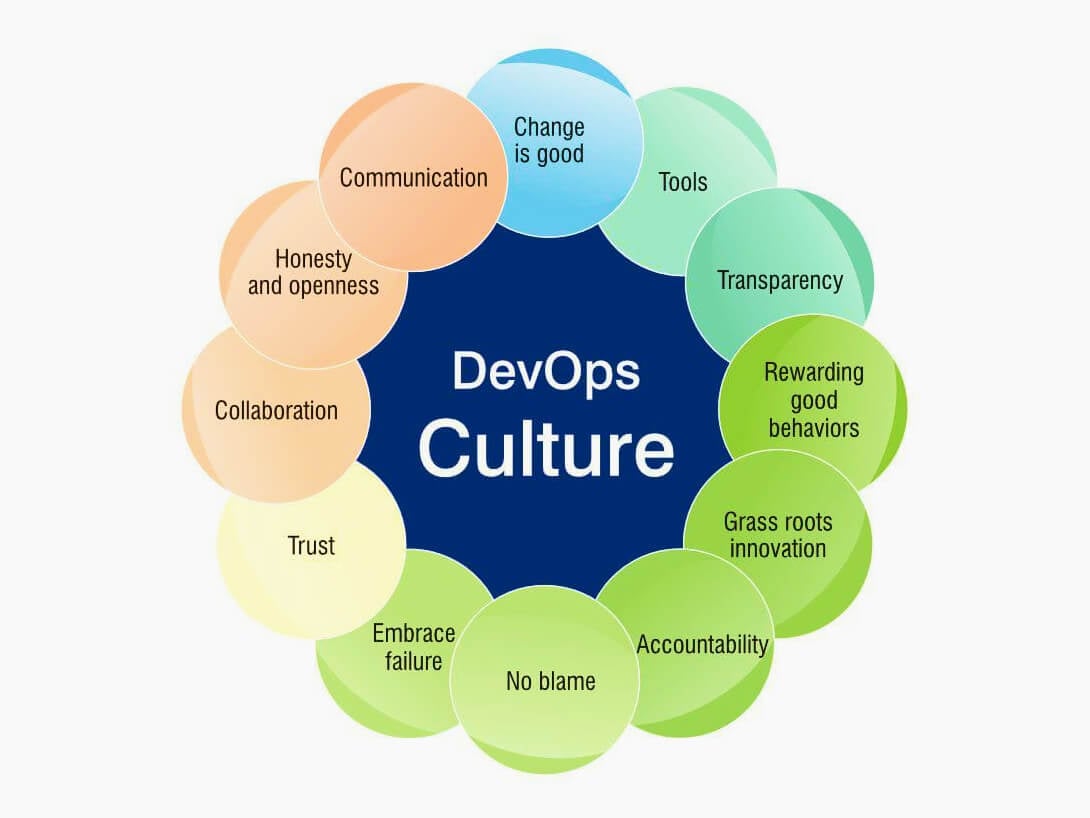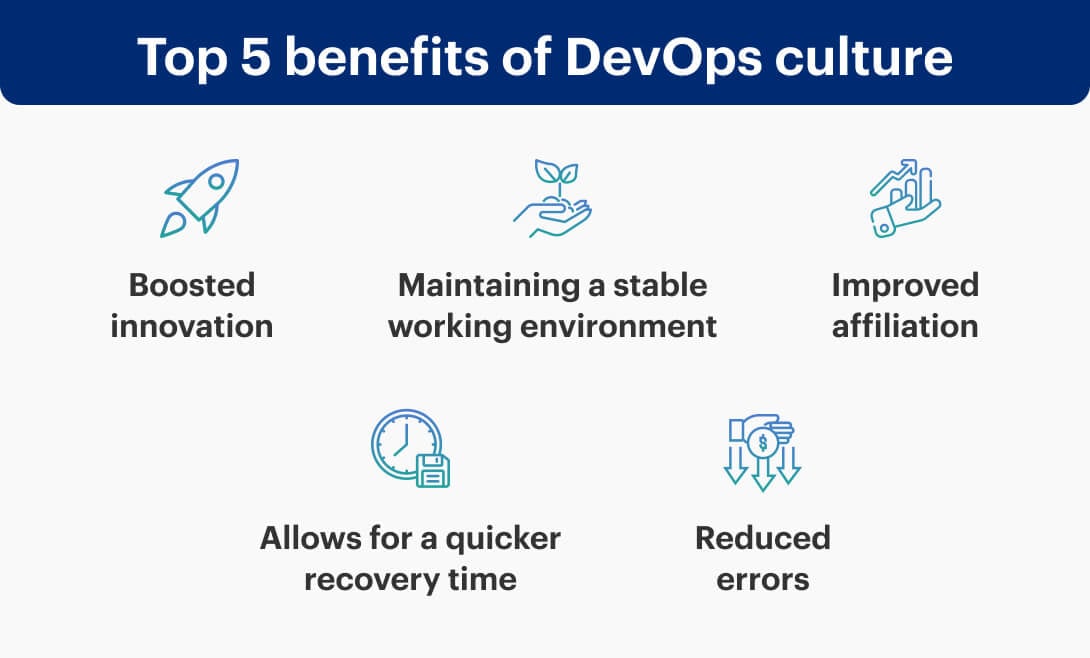DevOps is a shift in mindset. There is no more to say. It is not just a matter of implementing agile planning, automated testing, or continuous delivery, while these are all vital techniques. DevOps culture is all about developers and operators working together and sharing responsibility for the product they create. Increasing transparency, communication, and collaboration across development, IT/operations, and “the business” is one way to do this.
DevOps is an agile method to corporate change that aims to break down old silos between teams and build new processes that promote cooperation. New tools and agile engineering processes enable DevOps, yet they are insufficient to reap DevOps’ benefits. It’s challenging to fulfill the full potential of DevOps without the correct mindset, traditions, and culture.
What is DevOps culture

DevOps culture is all about developers and IT Operations working together and sharing responsibility for the product they create. Increasing transparency, communication, and collaboration across development, IT/operations, and “the business” is one way to do this.
A DevOps culture, at its core, entails closer collaboration and shared ownership for the products that development and operations build and maintain. This allows businesses to align better to their people, processes, and tools to focus on the consumer.
Increased clarity, communication, and collaboration amongst teams that formerly functioned in silos are at the heart of DevOps culture. However, significant cultural transformations are required to bring these teams nearer together. DevOps is a movement in corporate culture that prioritizes continuous learning and improvement, particularly through team autonomy, quick feedback, high compassion and trust, and cross-team association.
Building a DevOps culture
The importance of a DevOps environment to a company’s bottom line is obvious, but how do companies harness the value of DevOps methodologies? Although top-level management support is required for cultural change, beginning DevOps adoption at the individual, team level is an effective way to see how the process might assist other business sections. Teams may indicate what DevOps can do on a small scale, discover bottlenecks, and break them down while the issues are still small enough to handle quickly. Rather than “big bang” implementations, successful conversions are frequently incremental.
Top 5 benefits of DevOps culture

How can a company stay ahead of the pack in a competitive market by becoming more efficient in offering the finest features to customers on time? Here are some of the major benefits that an enterprise may gain by implementing the DevOps methodology:
1. Boosted innovation
Applications may be created and expanded significantly more quickly with a unified operations and development staff. This is significant since a company’s capacity to progress nowadays is heavily reliant on its ability to innovate faster than the competition.
As the number of changesets decreases, the difficulties become less complex. DevOps developers can use real-time production data to understand the impact of application modifications quickly. Software patches are also more agile because team members need to check the most recent code changes for faults.
2. Maintaining a stable working environment
Do you realize that the stress associated with the delivery of new features, changes, or upgrades can destabilize your workspace and reduce overall productivity? With DevOps methodology, you can enhance your work environment by taking a consistent and well-balanced approach to operations.
3. Improved affiliation
Rather than attempting to bridge the gap between the two disciplines, a successful DevOps environment guarantees that they work more smoothly together. The software development culture then focuses on cumulative achievement rather than individual targets.
Your software and operations teams will be able to investigate, examine, and develop more effectively if they believe in one another. It is no longer a question of tossing the app code against the wall and hoping for the best. As all crew members work toward common goals, your development environment will improve gradually and become seamless.
4. Allows for a quicker recovery time
Development teams can push out a limited amount of features in each iteration by using a DevOps methodology. If an error or failure happens, the most recent set of features is most likely to blame. The team will be able to fix issues faster because they will know where they are most likely to be found.
As the new set of features is handled by a single team, recovery times are usually substantially faster. That staff is in charge of troubleshooting and repairing faults, thus it is considerably faster.
5. Reduced errors
The combination of a shorter development cycle and a solid DevOps approach results in more regular code releases. Your teams may anticipate challenges in configuration, application code, and infrastructure with these enhanced modular implementations.
DevOps also keeps team members implicated throughout a highlight or application’s life cycle, resulting in higher-quality code. As developers look for and avoid potential impediments as they construct code, some fixes are required. According to a new State of DevOps survey, firms that implement a DevOps strategy have 60 times fewer crashes than those that do not.
Conclusion
For decades, developers have strived to produce software more frequently, with less effort and fewer errors. Now is the time to put the tools and processes in place to make this a reality. Cultivating a DevOps culture can be difficult, but the benefits in terms of a high developer, manager, and customer satisfaction are well worth the effort.








